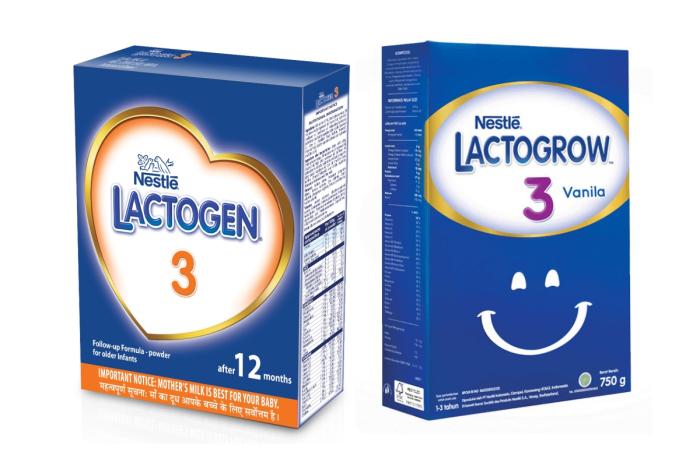Choosing the right infant formula can be a daunting task for new parents. With so many options available, it’s essential to find a product that meets your baby’s nutritional needs. Two popular brands are Lactogen and Similac. In this article, we will compare Lactogen and Similac to help you make an informed decision.
Understanding Infant Formula
Infant formula is designed to provide the necessary nutrients that babies need for growth and development. It is an alternative to breast milk for babies who are not breastfed. While both Lactogen and Similac are reputable brands, they differ in formulation, ingredients, and intended use.
Overview of Lactogen
Lactogen is a brand of infant formula produced by Nestlé. It is designed for babies from birth to 12 months old. The formula is available in different stages to cater to the changing nutritional needs of growing babies.
Lactogen is known for being more affordable compared to other brands. It is often recommended for parents looking for a budget-friendly option without compromising on quality.
The key ingredients in Lactogen include:
Whey protein: It is easy for babies to digest.
Vitamins and minerals: These are essential for growth and development.
Prebiotics: They support a healthy gut and improve digestion.
Overall, Lactogen aims to provide balanced nutrition and is suitable for most babies.
Overview of Similac
Similac is another well-known brand of infant formula, manufactured by Abbott. It is designed for infants from birth to 12 months. Similac offers a variety of formulas to meet specific needs, such as lactose sensitivity and organic options.
Similac is often praised for its enhanced formula, which includes added ingredients for specific developmental benefits.
Key ingredients in Similac include:
DHA and ARA: These are omega-3 and omega-6 fatty acids that support brain and eye development.
Iron: It helps prevent iron deficiency anemia, which is crucial for infants.
Prebiotics: Similar to Lactogen, Similac includes prebiotics for digestive health.
Similac also emphasizes the absence of artificial growth hormones and certain allergens, appealing to health-conscious parents.
Nutritional Comparison
When comparing Lactogen and Similac, it’s important to look at their nutritional profiles.
Protein Content
Both Lactogen and Similac provide sufficient protein for infants. However, the source of protein varies. Lactogen primarily uses whey protein, which is easy to digest. Similac uses a blend of whey and casein proteins, providing a balance of fast and slow-digesting proteins.
Fats and Fatty Acids
Fats are essential for brain development. Similac stands out because it includes DHA and ARA, which are vital for cognitive development. Lactogen also contains fats, but it may not have the same concentration of DHA and ARA.
Carbohydrates
Both formulas use lactose as a primary carbohydrate source. Lactose is important for energy and helps in calcium absorption. Some variants of Similac may contain corn syrup solids for additional energy, which some parents prefer to avoid.
Vitamins and Minerals
Both formulas provide a comprehensive range of vitamins and minerals. However, Similac tends to have a higher concentration of certain vitamins, like vitamin E, which is an antioxidant.
Taste and Digestibility
Taste can influence how well a baby accepts formula. While both Lactogen and Similac are generally well-accepted, some parents report that their babies prefer the taste of Similac.
In terms of digestibility, both brands are designed to be gentle on the stomach. Lactogen is known for being easy to digest due to its whey protein content. However, some babies might experience gas or constipation with either formula, depending on their individual digestive systems.
Price Comparison
Price is often a significant factor for parents when choosing an infant formula. Generally, Lactogen is more affordable than Similac. For families on a budget, Lactogen may be a more attractive option.
However, it’s crucial to consider the long-term costs. If a baby does better on Similac, the additional cost may be worth it.
Allergies and Sensitivities
Some babies may have allergies or sensitivities to certain ingredients in infant formula.
Lactogen
Lactogen is often suitable for most babies, but it contains lactose. Babies with lactose intolerance may experience discomfort.
Similac
Similac offers specific formulas for lactose-sensitive babies, such as Similac Sensitive. These formulas use partially hydrolyzed proteins, making them easier to digest for babies with sensitivities.
Recommendations from Pediatricians
Pediatricians often recommend formulas based on a baby’s specific needs.
Lactogen may be recommended for parents looking for an affordable option that meets general nutritional needs.
Similac may be advised for babies who require specialized formulas or added nutrients for development.
It’s always best to consult a pediatrician before making a decision. They can provide guidance based on your baby’s health and dietary requirements.
See also: What Is A Weighted Sleep Sack
Conclusion
Choosing between Lactogen and Similac depends on several factors, including nutritional needs, budget, and personal preferences.
Lactogen is a solid choice for parents seeking an affordable, well-rounded formula. It provides essential nutrients and is generally well-accepted by babies.
On the other hand, Similac may be better for those who want a formula with additional developmental benefits, especially DHA and ARA.
Ultimately, the best choice will depend on your baby’s individual needs and your family’s circumstances. Always consult with your pediatrician to determine the most suitable formula for your baby.
In summary, both Lactogen and Similac have their unique benefits. Assessing your baby’s needs, preferences, and your budget can help you make the best decision for your family.
Related topics:


